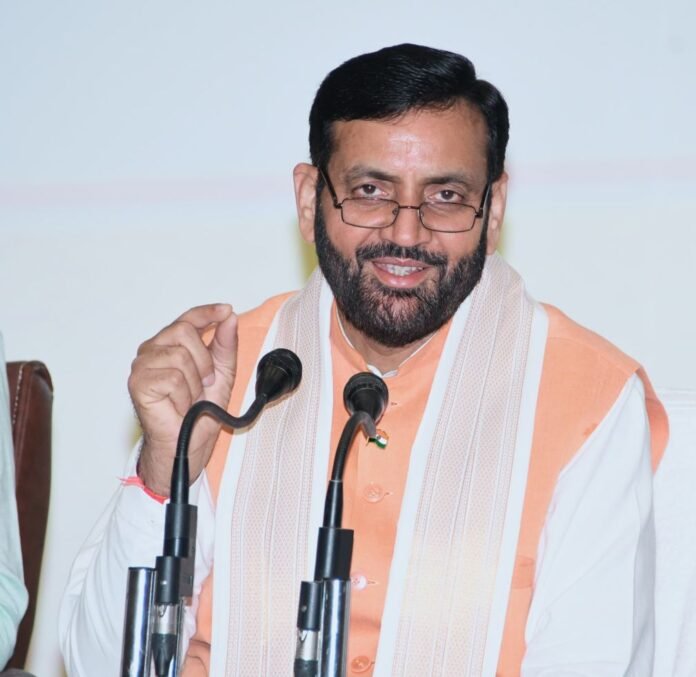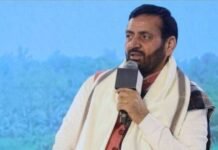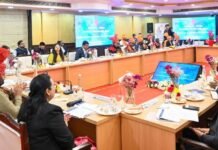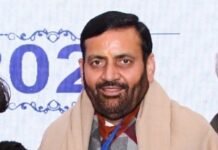In a significant political endorsement for electoral reform, Haryana Chief Minister Naib Singh Saini has firmly supported the “One Nation, One Election” initiative, calling it a transformative step towards strengthening India’s democracy. Addressing a key meeting of the Joint Parliamentary Committee during its study visit to New Chandigarh on the 129th Constitutional Amendment Bill and the Union Territory Laws (Amendment) Bill, 2024, CM Saini highlighted that this proposal, championed by Prime Minister Narendra Modi, is rooted not just in administrative efficiency but in the larger national vision of “Ek Bharat, Shreshtha Bharat.”
The Chief Minister emphasized that holding simultaneous elections across the country would not only streamline governance but also reflect the collective will of the people. Describing the repeated enforcement of election codes of conduct as a roadblock to governance and development, Saini pointed to Haryana’s own experience over the past year. The state witnessed three major elections in close succession – the Lok Sabha elections from March to June 2024, Assembly polls between August and October, and municipal elections between February and March 2025. These repeated electoral cycles, he noted, significantly stalled developmental works, drained administrative resources, and burdened public life.
According to Saini, the recurring disruption of public services due to electoral processes has become unsustainable. He underlined that “One Nation, One Election” is not merely a policy aspiration, but a public sentiment. The common citizen increasingly desires a consolidated electoral calendar to reduce governance paralysis, administrative fatigue, and fiscal expenditure. He asserted that implementing this reform would lead to better voter engagement, enhanced transparency, and more effective use of government machinery.
In a pointed observation, the Chief Minister also stressed the need for cultural and agricultural sensitivities to be factored into the national election calendar. Seasonal festivals, farming cycles, and marriage periods, he said, play a vital role in public life and must be considered while setting election dates to ensure higher voter participation and minimal disruption to traditional livelihoods.
Saini maintained that repeated elections often lead to voter fatigue, diluting enthusiasm and lowering turnout. A synchronized election system held every five years could reinvigorate democratic enthusiasm and encourage wider participation. He further added that a unified election framework would enhance consistency in voter awareness campaigns, enable coordinated administrative preparations, and allow for more judicious use of financial and human resources.
The Joint Parliamentary Committee meeting was attended by several high-profile members of Parliament including PP Chaudhary, Bhartruhari Mahtab, ET Mohammed Basheer, Vijay Kumar Hansdak, Yerram Venkata Subba Reddy, Ghanshyam Tiwari, P. Wilson, Chandan Chauhan, Manish Tewari, Anil Desai, Dr. K. Laxman, Saket Gokhale, Bansuri Swaraj, and Chhotelal. Also present were Haryana BJP State President Mohan Lal Kaushik and Chief Electoral Officer Pankaj Agarwal, among other dignitaries.
The growing chorus for “One Nation, One Election” represents a larger shift in India’s political thought process, seeking to move beyond fragmented voting cycles and towards a more synchronized democratic rhythm. Haryana’s support, as voiced by its Chief Minister, adds substantial weight to this vision, and strengthens the possibility of consensus emerging at the national level. As discussions continue, the eyes of the nation now turn towards the Centre’s next move on one of the most ambitious electoral reforms of recent times.
#OneNationOneElection #NaibSinghSaini #HaryanaPolitics #PMModi #ElectionReform #IndianDemocracy #SimultaneousPolls
This is an auto web-generated news web story.





